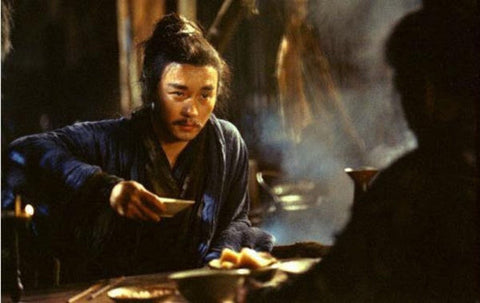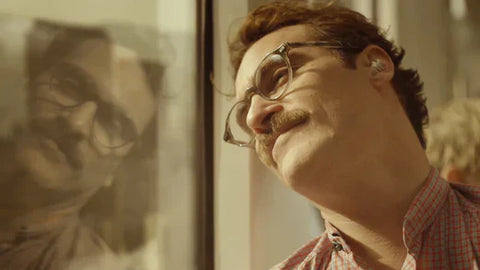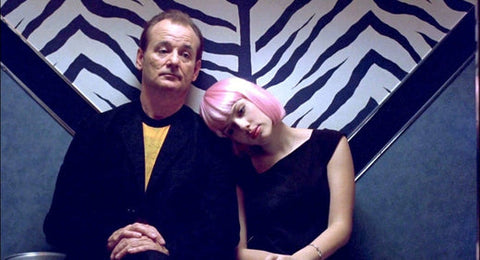
He and I were both drinkers. That year, we both developed a growing affection for whisky. He drank more heavily than I did, perhaps because he carried more weight inside him—silent burdens he seldom spoke of.
On many nights, he’d go out drinking with his friends. For most people, drinking was an excuse to socialise. For him, socialising was merely a way to drink. Solitary by nature, he had only a few close mates. The rest were incidental, part of the scenery in his pursuit of whisky.
Somewhere in the haze between sobriety and drunkenness, on his way home from the bar, he would call me.
"I’m exhausted. Come and pick me up."
"What are you doing? Come drink with me!"
"I asked my friends—they’ve never heard of anyone who doesn’t drink water, eats ketchup straight, condensed milk too, and only smooth peanut butter. Were you lying, or are you copying me?"
"I’m home. Completely worn out."
I can’t recall how I usually responded. I doubt he remembers either. By the next morning, he would always ask, “Did I embarrass myself last night? Did I say something I shouldn’t have?” I often wondered what exactly he meant by “something I shouldn’t have said.”
One evening, I happened to be in Causeway Bay when he called. He said he’d had a bit to drink and now had a craving for ramen. That’s how we ended up at Ichiran. It was only the second time we’d met in person—the first being a screening of The Handmaiden.
Tall and slightly awkward, he arrived carrying a small plastic bag. From it, he pulled out two sweets, explaining they were a gift from a friend who’d returned from Japan. He handed me one, and we ate them in companionable silence. Then he produced a miniature bottle of Hibiki whisky. We each took a sip. Drinking whisky like that, standing outside a ramen shop, was a first for me.
I told him I liked to peek through the noren curtain and startle whoever was on the other side. (Not a habit I’d recommend.) He grinned and said, “Alright, I’ll give it a try too!”
With him, conversations flowed easily, whether fuelled by alcohol or not. That night, we talked about religion—its intersections with politics, law, and psychology. Neither of us was an atheist, but neither of us believed in anything particular.
He wasn’t drunk when he got home that night. He texted me: “I liked what you wore today.” It was just a mustard-yellow bohemian top, nothing remarkable. But apparently, its colour and pattern resembled his shirt.
From then on, whisky became our shared language. He mentioned one of his life goals: to own a bottle of Karuizawa whisky. If he ever managed to get one, he promised to share it with me. I told him whisky didn’t have to be extravagant to be enjoyable—my favourite was Lagavulin 16, reasonably priced and perfectly smoky. Of all the whiskies I’d tried, it left the deepest impression. “Doesn’t matter,” he said. “We’ll share the Karuizawa someday. For now, we’ll share the Lagavulin.”
"If whisky were our language, things wouldn’t have to be so complicated. I’d simply extend my glass, and you’d quietly fill it. And just like that, everything would be resolved—intimately, effortlessly, perfectly." – Haruki Murakami, If Whisky Were Our Language
Every time I drink, I think of Ashes of Time and its musings on drunken oblivion. I’m convinced that everyone drinks to forget someone or some memory. I know whom I drink to forget, and I know whom he drinks to forget—even though he never mentions her.
"Drunken oblivion—a cruel joke she played on me. The more you try to forget, the more it clings to you. When something is unattainable, the only thing left to do is not to forget."
What I never told him was that one night, in a drunken haze, he confessed he liked me. I don’t know if he remembers, but I do. I’ve forgotten how I responded, but perhaps that doesn’t matter anymore.
Tonight, I’m sharing Lua by Bright Eyes, a song I came across and later introduced to him. It quickly became one of his favourites. He once described it in his usual understated way: “It’s the kind of song that makes you sad, but somehow makes sadness feel strangely satisfying.”
"1 got a flask inside my pocket,
we can share it on the train.
And if you promise to stay conscious,
I will try and do the same.
Well we might die from medication,
but we sure killed all the pain.
But what was normal in the evening,
by the morning seems insane."


